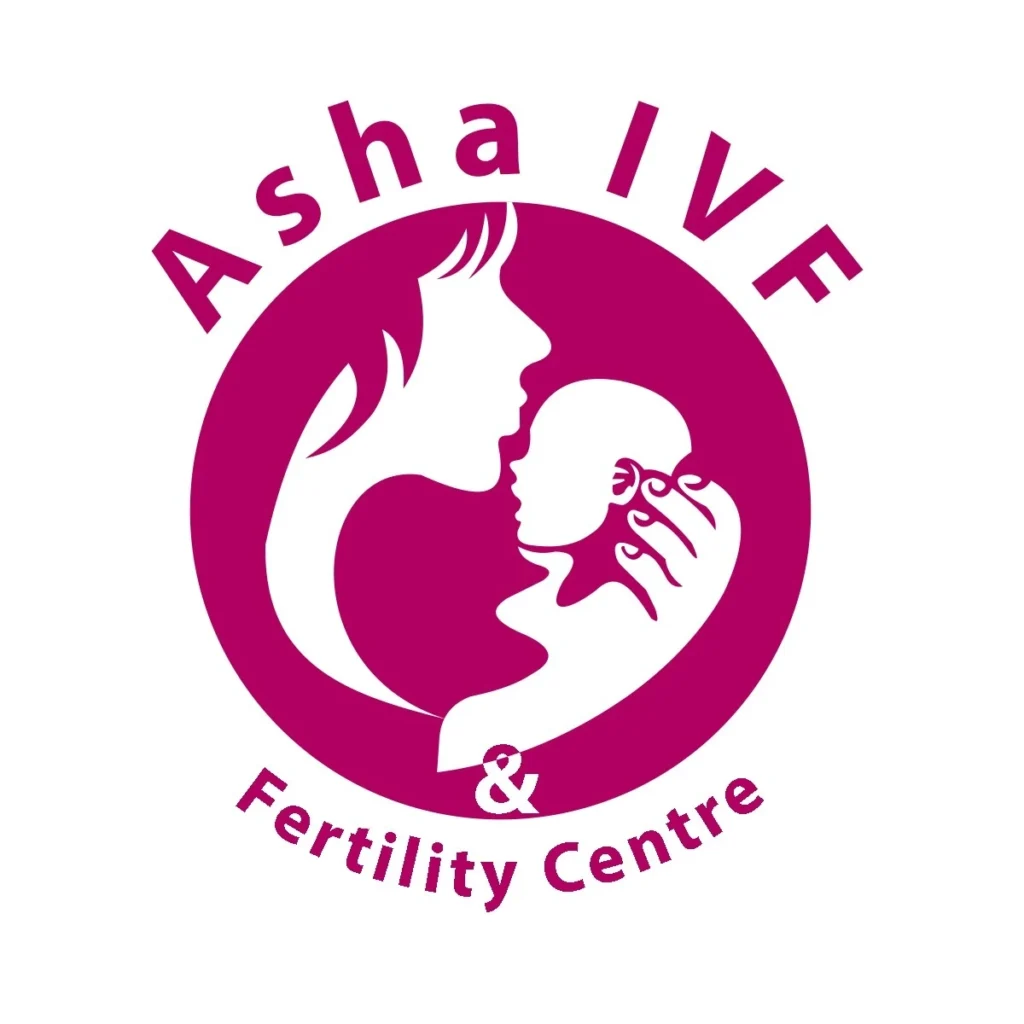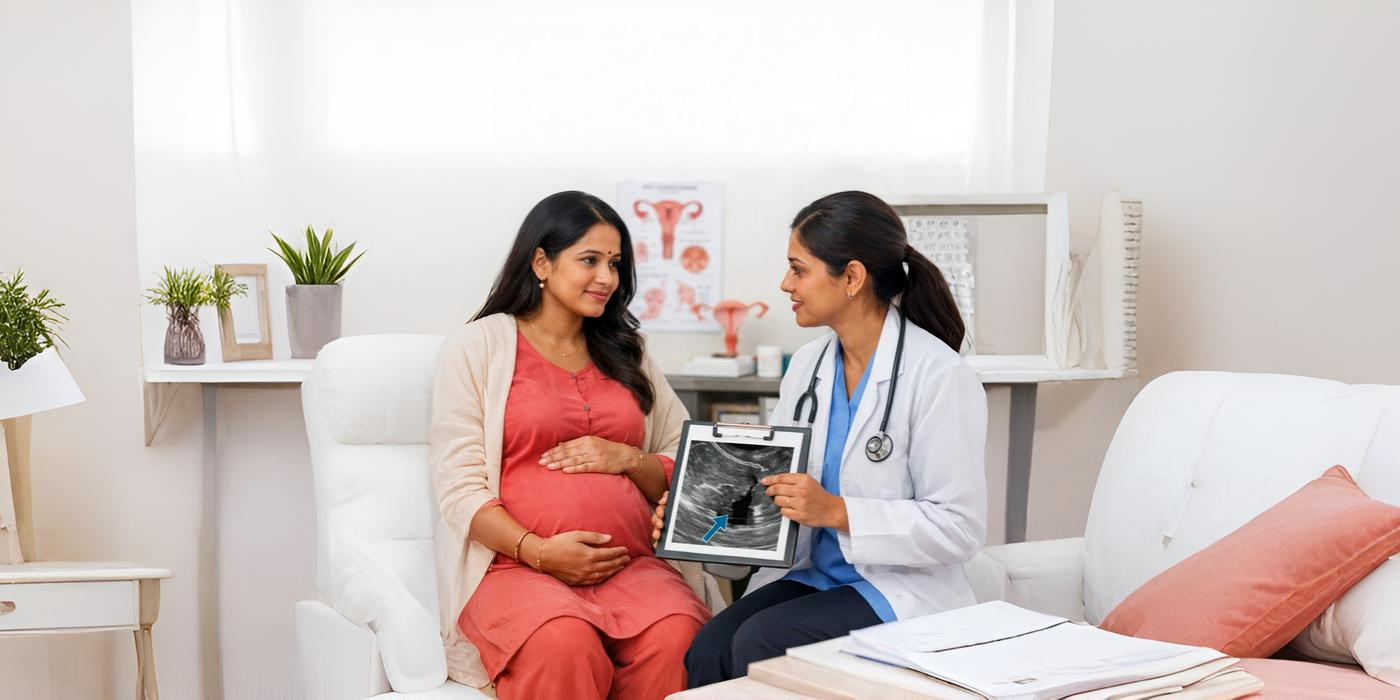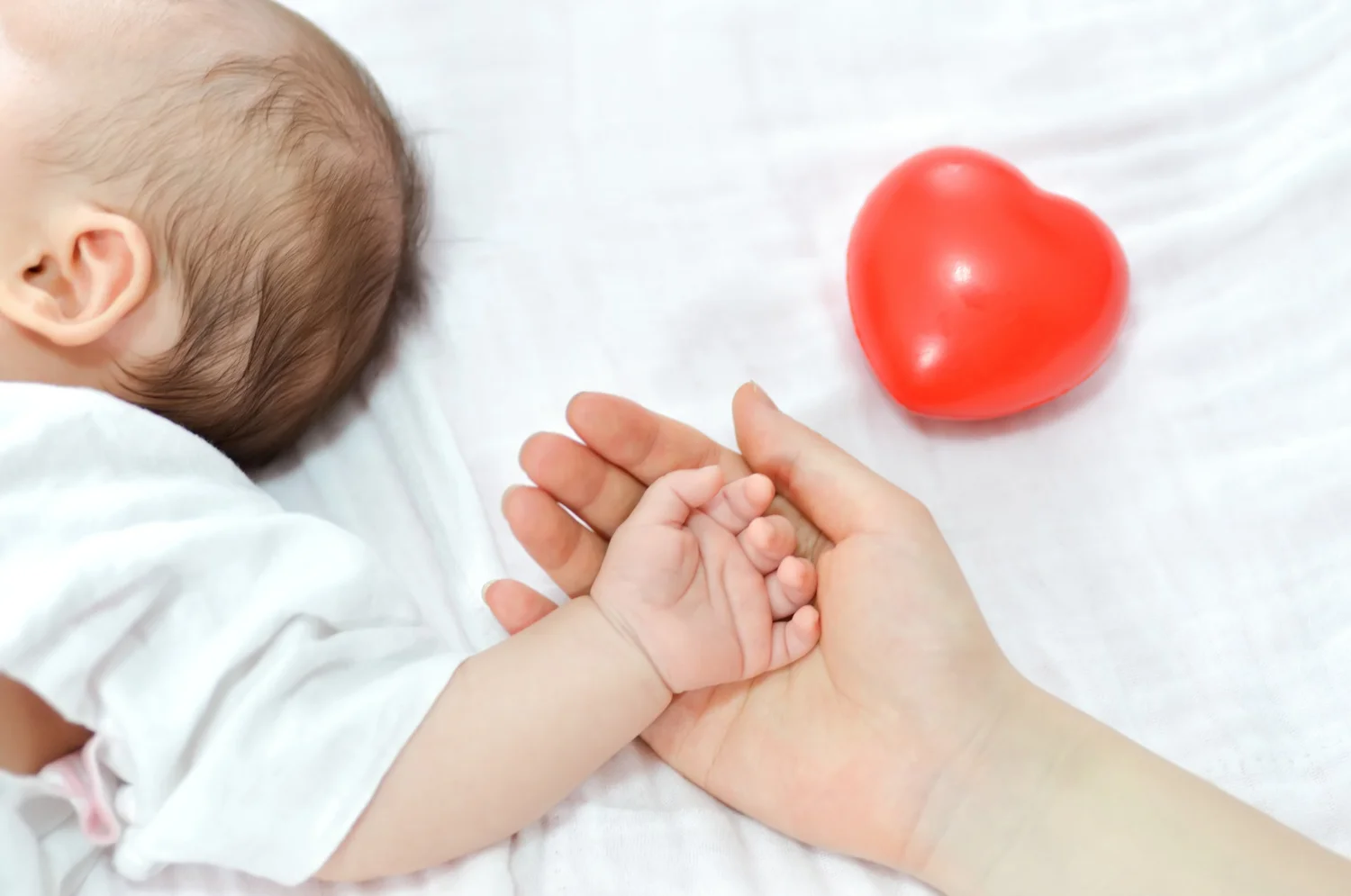Adenomyosis is becoming increasingly common among women in their late 20s to early 40s, yet many only discover it when they start facing painful periods, heavy bleeding, or unexplained difficulty getting pregnant.
If you’ve recently been diagnosed with adenomyosis, you may be asking the big question:
“Can I still get pregnant with adenomyosis?”
The good news is yes, pregnancy is absolutely possible with timely diagnosis, the right adenomyosis treatment, and specialized fertility care.
At Asha IVF & Fertility Centre, we see many women with adenomyosis achieve a healthy pregnancy through personalised medical and fertility treatment plans.
Let’s understand the condition, how it affects fertility, and which treatments truly help.
Quick Overview: Adenomyosis and Pregnancy
- Adenomyosis occurs when the uterine lining grows into the muscle wall, causing heavy periods, severe cramps, and inflammation.
- The condition can affect fertility by disrupting implantation, altering hormone balance, and affecting embryo development.
- Pregnancy is still possible; many women with mild adenomyosis conceive naturally without medical intervention.
- Moderate to severe adenomyosis may require medical treatment, hormonal therapy, or fertility support.
- IVF, especially with pre-treatment strategies, significantly improves pregnancy outcomes in women with adenomyosis.
- A personalised approach based on age, symptoms, and severity offers the best chance of a healthy pregnancy.
What Is Adenomyosis? (Adenomyosis Meaning)
Adenomyosis happens when the inner lining of the uterus (endometrium) grows abnormally into the muscular wall (myometrium).
This causes the uterus to enlarge, thicken, and react unusually during menstrual cycles.
Symptoms of Adenomyosis
Many women with adenomyosis experience:
- Severe period pain
- Heavy menstrual bleeding
- Pain during intercourse
- Chronic pelvic heaviness
- Blood clots during periods
- Spotting between cycles
- Difficulty conceiving
Causes & Risk Factors
While the exact cause is unknown, you’re at higher risk if:
- You’re 30–45 years old
- You’ve had previous pregnancies
- You’ve had uterine surgeries
- You have hormonal imbalance
- You have chronic uterine inflammation
How Adenomyosis Affects Fertility
Adenomyosis does not cause infertility in every woman, but it can significantly affect adenomyosis and pregnancy by interfering with several key steps needed for natural conception. The condition may alter the uterine environment, disrupt implantation, and increase inflammation, making it harder for an embryo to attach and grow.
1. Implantation Becomes Difficult
Inflammation and thickening of the uterine muscle interfere with the embryo’s ability to attach securely.
2. Chronic Inflammation
Adenomyosis increases inflammatory cells within the uterus, which can:
- Affect uterine receptivity
- Harm embryo development
- Increase risk of implantation failure
3. Hormonal Imbalance
Progesterone resistance, common in adenomyosis, makes it harder for the uterus to support early pregnancy.
4. Abnormal Uterine Contractions
This can reduce sperm transport and lower conception chances.
5. Higher Risk of Miscarriage
Some women with untreated moderate-to-severe adenomyosis may face:
- Early miscarriages
- Implantation failures
- Chemical pregnancies
However, with proper treatment, these risks can be significantly reduced.
Can Women with Adenomyosis Get Pregnant Naturally?
Yes, many women with early or mild adenomyosis can get pregnant naturally, and natural conception is absolutely possible even after diagnosis. However, in some cases adenomyosis and pregnancy become more challenging due to inflammation, hormone imbalance, or poor uterine receptivity.
Natural Pregnancy Is More Likely When:
- Symptoms are mild
- Ovulation is regular
- Uterus is not significantly enlarged
- No associated endometriosis or fibroids
Medical Help Is Recommended When:
- Period pain is severe
- Heavy bleeding affects daily life
- You’ve been trying for 6–12 months without success
- Adenomyosis is moderate to severe
- There are repeated miscarriages
Early evaluation and treatment at Asha IVF improve the chances of conceiving naturally and carrying a healthy pregnancy.
Want to know whether to meet a fertility gynecologist first or consider IVF directly? Read our detailed guide here.
Best Fertility Treatments for Adenomyosis (Adenomyosis Treatment Options)

The best adenomyosis treatment for improving fertility depends on several individual factors, including your age, the severity of symptoms, the stage of adenomyosis, and whether you’ve had previous pregnancies. Adenomyosis and pregnancy are closely linked to the health of the uterine lining and muscle; so the treatment must be personalised to reduce inflammation, improve uterine receptivity, and support embryo implantation.
1. Hormonal & Medical Therapy
These treatments help “prepare” the uterus for pregnancy by controlling inflammation and hormonal imbalance.
Common medications include:
- Progesterone therapy for cycle regulation
- Oral contraceptives (temporary symptom relief)
- GnRH agonists to shrink adenomyotic tissue
- Anti-inflammatory therapy for pain relief
GnRH pre-treatment is especially helpful before IVF cycles.
2. Non-Surgical Therapy
Useful for mild adenomyosis:
- Physiotherapy
- Lifestyle management
- Anti-inflammatory diet
- Pain management techniques
These support the primary fertility treatment.
3. Laparoscopic Surgery
For focal adenomyosis, surgeons may remove affected tissue to:
- Improve uterine structure
- Reduce pain
- Enhance natural fertility
This technique requires high surgical expertise and is not suitable for diffuse adenomyosis.
4. Uterine Artery Embolization (UAE)
Not commonly recommended for women actively trying to conceive, because it may:
- Reduce blood flow to the uterus
- Increase pregnancy risks
Used selectively in complex cases.
5. IVF for Adenomyosis – Most Effective for Moderate–Severe Cases
IVF bypasses many fertility barriers caused by adenomyosis.
IVF success is higher when combined with:
- Pre-IVF GnRH suppression
- Personalised stimulation protocols
- Frozen embryo transfer (FET)
- Enhanced luteal phase support
This is one of the most common and successful approaches offered at Asha IVF & Fertility Centre.
6. ICSI (Intracytoplasmic Sperm Injection)
If adenomyosis co-exists with male factor infertility, ICSI offers:
- Higher fertilisation rates
- Better embryo development
IVF Success with Adenomyosis: The Asha IVF Approach
At Asha IVF & Fertility Centre, our experience has shown that IVF success improves significantly when adenomyosis is treated prior to the embryo transfer.
Our Key IVF Strategies Include:
1. Pre-IVF Downregulation
Using GnRH analogues for 2–3 months:
- Shrinks adenomyosis
- Reduces inflammation
- Enhances uterine receptivity
2. Frozen Embryo Transfer (FET)
Allows the uterus to recover before implantation.
3. Customized Stimulation Protocols
Personalized according to:
- Age
- AMH
- Severity of adenomyosis
4. Advanced Laboratory Support
Embryo culture techniques and ICSI improve outcomes.
Why Choose Asha IVF & Fertility Centre for Adenomyosis & Fertility Care?
At Asha IVF & Fertility Centre, Dr. Astha Chakravarty brings over 18 years of specialised FNB training and deep expertise in treating complex infertility conditions like adenomyosis. With advanced diagnostics such as 3D ultrasound and high-resolution imaging, we assess uterine health with precision.
Every woman receives an individualised plan with customised IVF or ICSI protocols and evidence-based pre-treatment to improve implantation. Our care remains ethical, transparent, and patient-focused, offering compassionate support at every step. At Asha IVF, we prioritise holistic, science-backed fertility care to help every woman achieve a healthy pregnancy.

FAQs
1. How can I find affordable adenomyosis diagnosis and treatment centers near me?
Look for clinics offering transparent pricing, 3D ultrasound, and personalised adenomyosis treatment plans. Asha IVF provides affordable, expert-led diagnosis and fertility care, ensuring accurate evaluation and cost-effective treatment for women trying to conceive with adenomyosis.
2. What are the best fertility clinics in India specializing in adenomyosis-related pregnancy issues?
Top clinics combine advanced diagnostics, personalised IVF protocols, and experienced fertility specialists. Asha IVF is widely recognised for managing adenomyosis and pregnancy using evidence-based IVF, ICSI, and pre-treatment strategies that significantly improve implantation and pregnancy outcomes.
3. Can adenomyosis affect pregnancy outcomes and what treatments are recommended?
Yes, adenomyosis may affect implantation and increase inflammation, influencing pregnancy outcomes. Recommended treatments include hormonal therapy, GnRH suppression, personalised IVF cycles, and frozen embryo transfer to improve uterine receptivity and support healthier embryo development.
4. Can adenomyosis cause complications during delivery and how do hospitals manage them?
Adenomyosis and pregnancy may increase risks like heavy bleeding or preterm labour. Hospitals manage these complications through close monitoring, detailed antenatal scans, and personalised delivery plans to ensure safer outcomes for both mother and baby.
5. Can adenomyosis cause infertility and does every woman need treatment?
Adenomyosis can impair implantation and fertility, but not all women need treatment. Mild cases may conceive naturally, while moderate to severe cases benefit from hormonal therapy, IVF, or pre-treatment to improve conception chances.
6. Can IVF help women with adenomyosis conceive?
Yes, IVF is highly effective for adenomyosis. Combining GnRH suppression and frozen embryo transfer reduces inflammation, improves uterine conditions, and significantly increases implantation and pregnancy success, helping many women achieve healthy pregnancies at Asha IVF.






